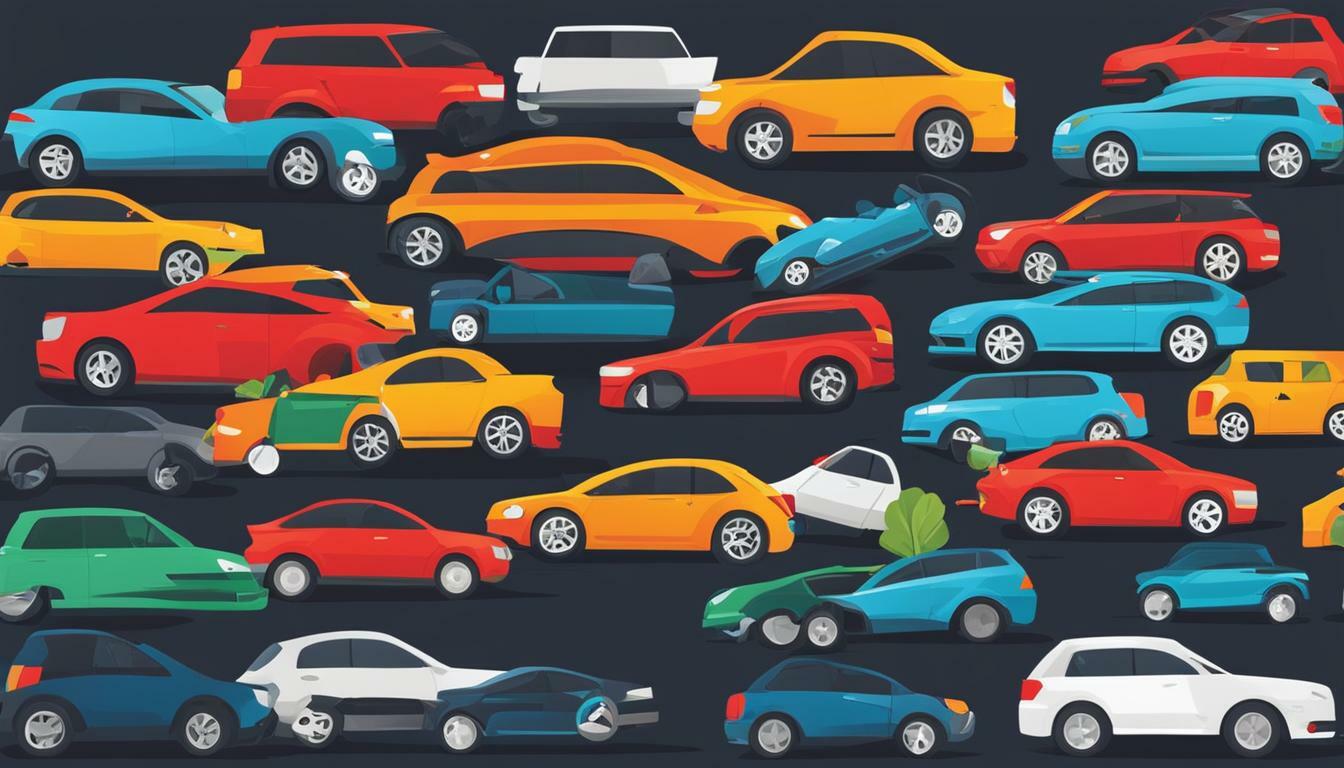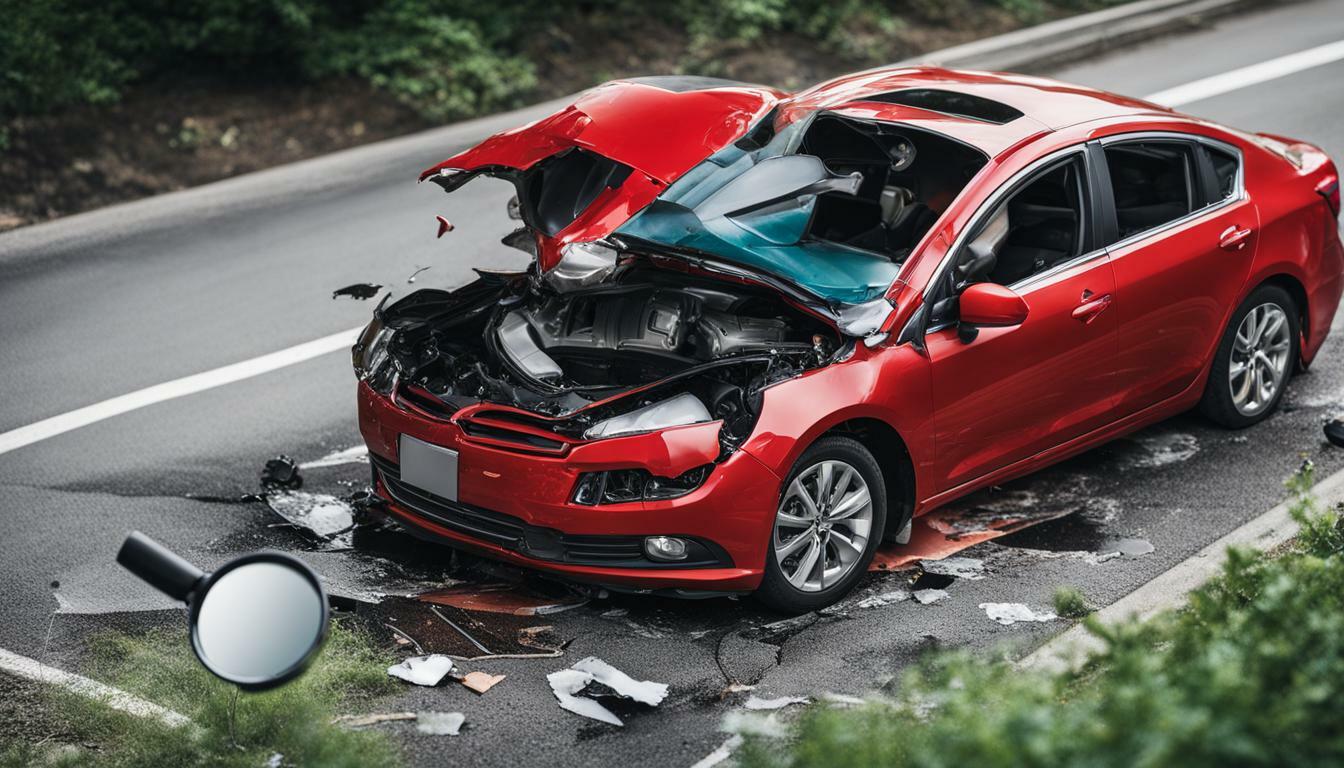Car insurance deer collision coverage, also known as comprehensive coverage, plays a vital role in safeguarding your vehicle from unexpected encounters with wildlife on the road. It is important to understand the ins and outs of comprehensive coverage and how it protects against damage caused by hitting a deer.
Key Takeaways
- Comprehensive coverage is typically the type of insurance that covers deer accidents.
- Physical contact between your vehicle and the deer is necessary for the crash to be covered under comprehensive insurance.
- Comprehensive coverage is not required by any state laws, unlike liability coverage.
- Both comprehensive and collision coverages come with deductibles and limits.
- Filing a comprehensive claim after hitting a deer may affect your auto insurance rates.
- Exercise caution during the months when deer activity is highest and be aware of deer crossing signs to prevent accidents.
Comprehensive Coverage for Deer Accidents
When it comes to deer collisions, comprehensive coverage should be a crucial component of your car insurance policy, as it provides financial protection in the event of a deer-related accident. Comprehensive coverage helps cover the costs of repairing or replacing your vehicle if it sustains damage from hitting a deer. However, it’s important to note that your vehicle must make physical contact with the deer for the crash to be covered under comprehensive insurance. If you swerve to avoid a deer and end up colliding with another vehicle, it would be considered a collision claim.
Unlike liability coverage, which is required by most states, comprehensive coverage is not mandated by any state laws. However, it can be a wise investment, especially if you live in an area prone to deer accidents. With comprehensive coverage, you can choose a set deductible, which is the amount you’ll have to pay out of pocket toward a covered claim. Keep in mind that both comprehensive and collision coverages typically have deductibles and limits.
It’s worth noting that filing a comprehensive claim after hitting a deer may impact your auto insurance rates. Insurance companies consider claims history when determining rates, and a comprehensive claim is no exception. So, before filing a claim, it’s essential to weigh the cost of repairs against the potential increase in premiums.
High-Risk Times and Prevention
To avoid deer collisions, exercise caution during the months when deer activity is highest. In many areas, this typically occurs during the fall and winter months. It’s also crucial to be aware of deer crossing signs, particularly in states with high deer populations. When driving in areas prone to deer crashes, slow down and remain vigilant, especially during dawn and dusk when deer are more active.
In the event that you do hit a deer, pull over safely and contact the police as well as your car insurance company. They will guide you through the claims process and advise on the necessary steps to take. Remember, hitting a deer is considered a comprehensive claim, not a collision claim, and liability insurance does not cover damage resulting from a deer collision.
| Key Points |
|---|
| Comprehensive coverage is essential for protecting against deer accidents. |
| Comprehensive coverage requires physical contact with the deer. |
| Filing a comprehensive claim may affect your insurance rates. |
| Exercise caution and be aware of high-risk times to avoid deer collisions. |
Tips to Avoid Deer Collisions and Conclusion
By following these simple yet effective tips, you can significantly reduce the chances of encountering a deer collision and maximize the benefits of your car insurance policy.
Firstly, exercise caution during the months when deer activity is highest. Typically, deer are more active during the fall and winter months, especially during dawn and dusk. Be extra vigilant during these times, as deer are more likely to be on the move.
Secondly, be aware of deer crossing signs, especially in states with high deer populations. These signs are strategically placed in areas where deer are known to frequently cross roads. When you see a deer crossing sign, slow down and be prepared to encounter deer on the road.
Lastly, always remember to drive defensively. Keep a safe distance between your vehicle and the car in front of you, as this will give you more time to react if a deer suddenly appears. Also, be mindful of your surroundings and regularly scan the sides of the road for any signs of wildlife.
In conclusion, understanding car insurance for deer collision coverage is crucial for protecting yourself and your vehicle. Comprehensive coverage is typically responsible for covering damages resulting from hitting a deer, while collision coverage applies in other accident scenarios. By being cautious and following these tips, you can mitigate the risk of deer collisions and ensure that your car insurance policy provides you with the necessary coverage in case of an unfortunate incident.
FAQ
Does car insurance cover deer collisions?
Yes, comprehensive coverage on your car insurance policy typically covers deer collisions. Comprehensive coverage helps pay for repairs or replacement of your vehicle if it’s damaged when you hit a deer.
Is comprehensive coverage required by law?
No, comprehensive coverage is not required by any state laws. Most states only require drivers to carry liability coverage.
What is a deductible and how does it apply to deer collisions?
When you purchase comprehensive or collision coverage, you choose a deductible. This is the amount you’ll pay out of pocket toward a covered claim, including deer collisions. If you file a comprehensive claim after hitting a deer, you may have to pay the deductible.
Will filing a claim for hitting a deer affect my insurance rates?
Yes, filing a comprehensive claim after hitting a deer may affect your auto insurance rates. It’s important to consider the potential impact on your premiums before deciding to file a claim.
What should I do if I hit a deer?
After hitting a deer, you should pull over, call the police, and notify your car insurance company. It’s important to document the incident and gather any necessary evidence for your claim.
Can I prevent deer collisions?
While deer collisions can happen unexpectedly, there are measures you can take to reduce the risk. Exercise caution during the months when deer activity is highest, and be aware of deer crossing signs, particularly in states with high deer populations.
Will hitting a deer be considered an at-fault accident?
No, hitting a deer is not considered an at-fault accident because there are no other cars involved. However, it’s still important to follow proper procedures and report the incident to the appropriate authorities and your insurance company.



